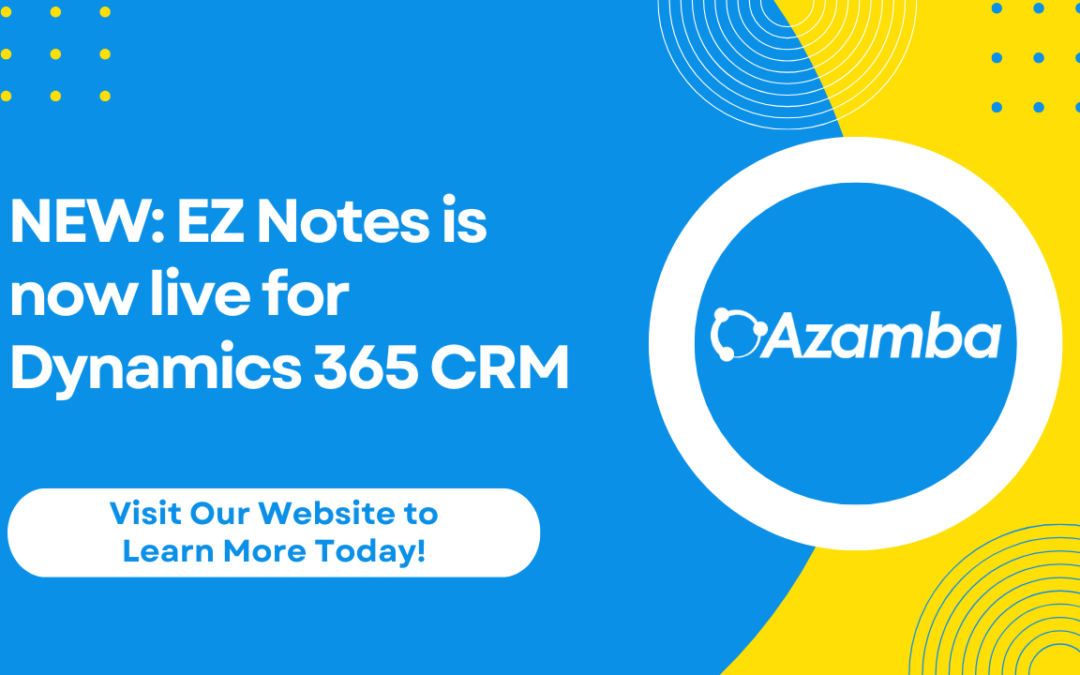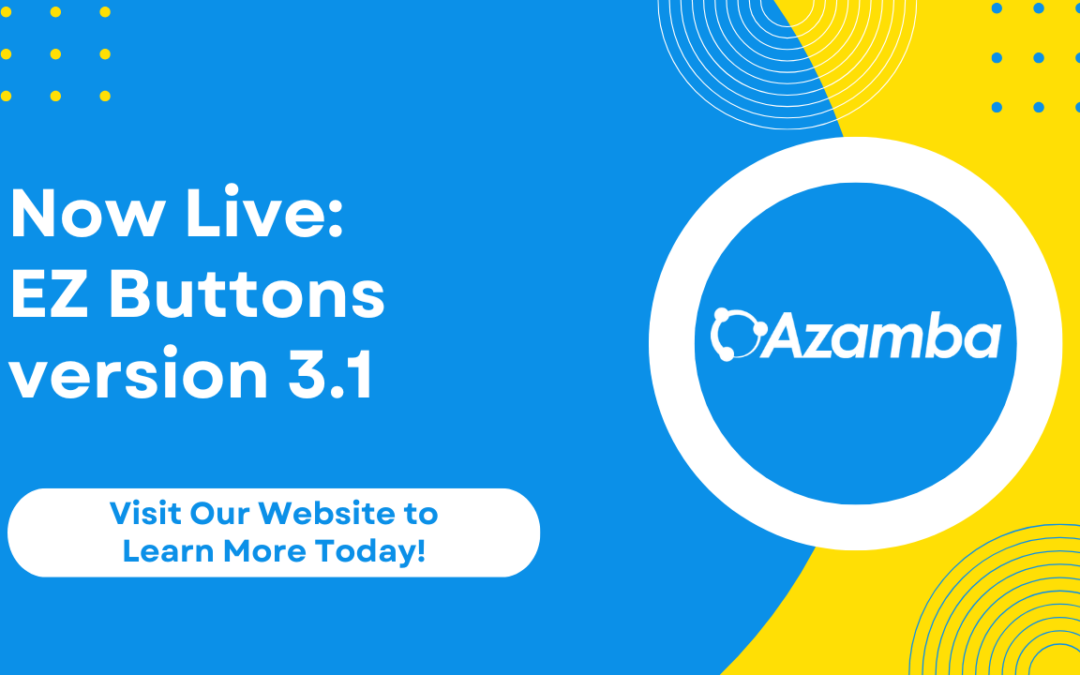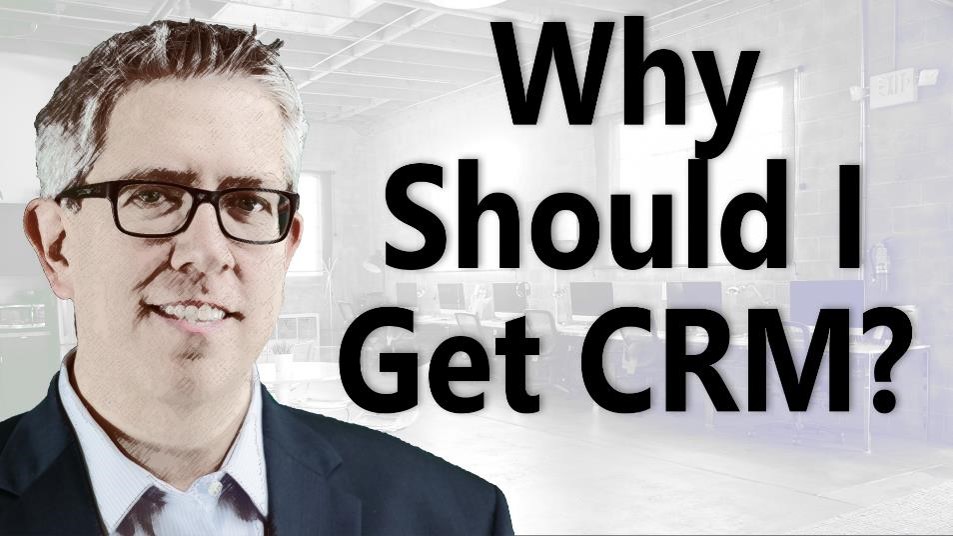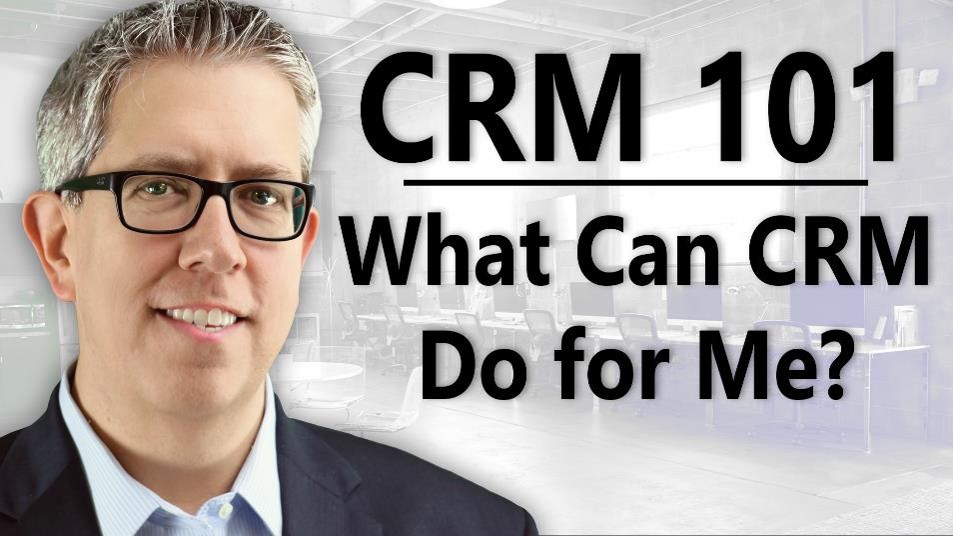CRM vs. ERP – What’s the Difference?
CRM vs. ERP – What’s the Difference?
…and which is best for your business?
Welcome to CRM 101, your introductory course to customer relationship management software and its many features, benefits, best practices, and pitfalls.
In this episode, we’re going to take a quick look at the differences between two extremely popular types of business software: CRM and ERP.
Both CRM and ERP offer powerful tools to boost your organization’s profitability. Some CRM and ERP features actually overlap, and many systems are integration-compatible with one another. Some ERP systems even include lightweight CRM or CRM-like features.
But there are major differences between the core principles and functionalities of CRM and ERP.
So in this episode of CRM 101, we’ll explore those differences and what they might mean for your business.
What is CRM?
CRM stands for “Customer Relationship Management.” CRM is specifically designed to increase sales from both new and repeat customers.
CRM is designed to improve customer relationships by enabling you to create a consistent, high-quality experience for both customers and prospects. It’s about improving your ability to connect with prospects, and then ensuring timely, reliable, consistent, and quality service as those prospects become customers. Better customer relationships create loyal customers, and loyal customers increase your long-term profitability.
Put simply, CRM gazes outward, to where your team interacts with customers and prospects.
CRM is therefore particularly useful to your sales, customer service, and <marketing teams.
A well-implemented CRM system can help your team:
- improve response time
- pursue new leads and opportunities more effectively
- create, automate, evaluate, and iterate marketing campaigns
- standardize and streamline the sales process
- analyze customer interactions and purchasing patterns
- facilitate consistent, high-quality customer support
- automate repetitive tasks
Want to set your CRM up for long-term success? Book a FREE discovery call today.
What is ERP?
ERP stands for “Enterprise Resource Planning.” ERP is designed to improve the efficiency of your business processes to reduce overhead and cut costs.
But while CRM focuses on prospect and customer interactions, ERP focuses on all aspects of your business. And while CRM focuses on boosting sales, ERP focuses on reducing costs, increasing visibility, and streamlining processes.
So whereas CRM gazes outward, ERP gazes inward at what your team is doing and how efficiently they are doing it.
ERP, then, can benefit any division in your enterprise.
Properly utilized, ERP can help your team:
- enter and track real-time business process information within and across departments
- alert team members when issues elsewhere in the company may affect them
- plan department- and enterprise-level strategy based on enterprise-wide knowledge
- process orders, update accounts, and trigger automatic alerts to fulfill and bill those orders
- manage manufacturing and supply chains while creating records and alerts at every step in the process
- track recruiting and hiring initiatives
- manage payroll, benefits, and personal information for employees
CRM or ERP?
If you’re choosing between CRM and ERP, there are three main factors to consider:
1. needs
2. investment
3. scale
There are a lot of similarities between CRM and ERP, but each serves different needs: CRM is built to boost raw sales numbers; ERP is built to reduce the cost of each sale.
CRM systems also tend to be much cheaper than ERP systems, so while neither is a small investment, ERP is typically a much larger investment.
And finally, both systems scale very differently. CRM tends to provide proportionally greater benefits to small and medium-sized businesses with room to grow, and for which a boost to raw sales numbers can be a bigtime boon.
ERP, on the other hand, provides proportionally greater benefits to large, complex organizations for which a cost-cutting, efficiency-driven system can scale well enough to provide potentially huge returns on your investment.
Of course, those larger organizations aren’t likely to turn their noses up at increases sales, either, so many organizations use integrated CRM and ERP systems.
The good news is, even if your business isn’t ready to take full advantage of ERP now, you can always start with CRM and then integrate with a compatible ERP when you’re ready.
For example, Microsoft Dynamics 365 Customer Engagement, a CRM system, integrates seamlessly with Microsoft Dynamics Business Central, an ERP system, and you can do so years down the road to grow into the need and spread out both your risk and your investment.
And if you work with us at Azamba, we can refer you to one of our trusted ERP partners if and when the time comes to add ERP to your business strategy!
Is CRM the Right Fit for Your Business?
Find out with a FREE consultation from one of our highly-experienced consultants!
Our team can help you decide whether CRM is the right fit for your business, and can also help you identify opportunities to maintain your competitive edge, mitigate risks to your business, maximize value of your existing resources, and increase profitability whether you choose to work with us on a CRM project or not!
Azamba Launches EZ Notes: A Smarter, Simpler Way to Take and Manage Notes in Dynamics 365 CRM
Chicago, IL – [March 19th, 2025] - Are messy, disorganized notes wasting your team’s time and leaving critical details lost in the shuffle? Do you spend more time searching for information than acting on it? EZ Notes is here to end the frustration and take the chaos...
Powerful New Updates to Accelerate Sales for Microsoft Dynamics 365 CRM Users
Chicago, IL – [March 5th, 2025] – Azamba is excited to announce the release of EZ Buttons 3.1. This powerful CRM Add-On for Microsoft Dynamics 365 simplifies tasks and makes CRM a breeze to use. With this CRM Add-On, you will work faster and smarter with less...
Azamba releases EZ Buttons 3.0!
Chicago, IL – [November 20th] - We are thrilled to bring you EZ Buttons 3.0, a game-changing update packed with powerful tools to streamline your sales process and help you get more done, faster. With EZ Buttons, turn time-consuming, multi-step tasks into quick,...
Microsoft Dynamics 365 Business Central + CRM Integration Demo | Dynamics Deep Dive Series
Stay Connected Without Switching Systems If your team is jumping between tools just to get a full picture of a customer or transaction, you’re losing time. You might even be missing opportunities. The integration between Microsoft Dynamics 365 and Business Central...
How to Track Your Goals and Metrics in Microsoft Dynamics 365 CRM | Dynamics Deep Dive Series
Set and Track Your Goals, All From CRM Goal tracking shouldn’t require extra work. If your team is still updating spreadsheets or switching between apps just to see where they stand, it’s time for something better. With Dynamics 365, you can monitor performance,...
Why MSP’s Should Add CRM to Their Solution Portfolios
We’re entering a new era in CRM All the old reasons for customers buying CRM are still valid but the advent of AI is making the case for renewed interest in CRM. To modify an adage, “If it’s interesting to my customers, then it is fascinating to me!”. AI is...
Boost Your MSP Earnings with Strategic Partnerships
Time is money, we’ve been told since childhood The idea is that people should focus their attention on the things that bring value to them and avoid the things that don’t. Since time is a precious resource, it makes sense to try and maximize its utility as it’s the...
CRM Launch in 5 Weeks – Get Results Fast!
New to CRM? Get it Right from Day One CRM is no longer a luxury. It’s an essential tool for businesses that want to stay competitive, responsive, and move fast. But for a lot of businesses, CRM quickly turns into a nightmare. Imagine this: You spend thousands of...
How Most CRM Projects Fail & Yours Won’t | CRM Strategy
Stop The Risk of Failure Before It Starts Did you know that, according to a Gartner study, between up to 70% of CRM implementations fail? If you're a small or medium-sized business, this can seriously impact your budget, and you could lose out on profitable...
Do This to Avoid Wasting Time and Money With Your CRM
CRM Strategy: The Key to Avoiding a Costly Mistake CRM can either be a game-changing investment for your business or a massive waste of time and money. The difference depends entirely on your approach. Like many businesses, you want to boost sales, increase customer...
David Marincic is Partner Experience Manager at Azamba. He also manages and edits Azamba publications and social media channels.
David believes in the importance of good planning, sound practice, effective communication, and continued education in order to get the most from any technology solution.
Related articles:

Azamba Launches EZ Notes: A Smarter, Simpler Way to Take and Manage Notes in Dynamics 365 CRM
Chicago, IL – [March 19th, 2025] - Are messy, disorganized notes wasting your team’s time and leaving critical details lost in the shuffle? Do you spend more time searching for information than acting on it? EZ Notes is here to end the frustration and take the chaos...

Powerful New Updates to Accelerate Sales for Microsoft Dynamics 365 CRM Users
Chicago, IL – [March 5th, 2025] – Azamba is excited to announce the release of EZ Buttons 3.1. This powerful CRM Add-On for Microsoft Dynamics 365 simplifies tasks and makes CRM a breeze to use. With this CRM Add-On, you will work faster and smarter with less...



